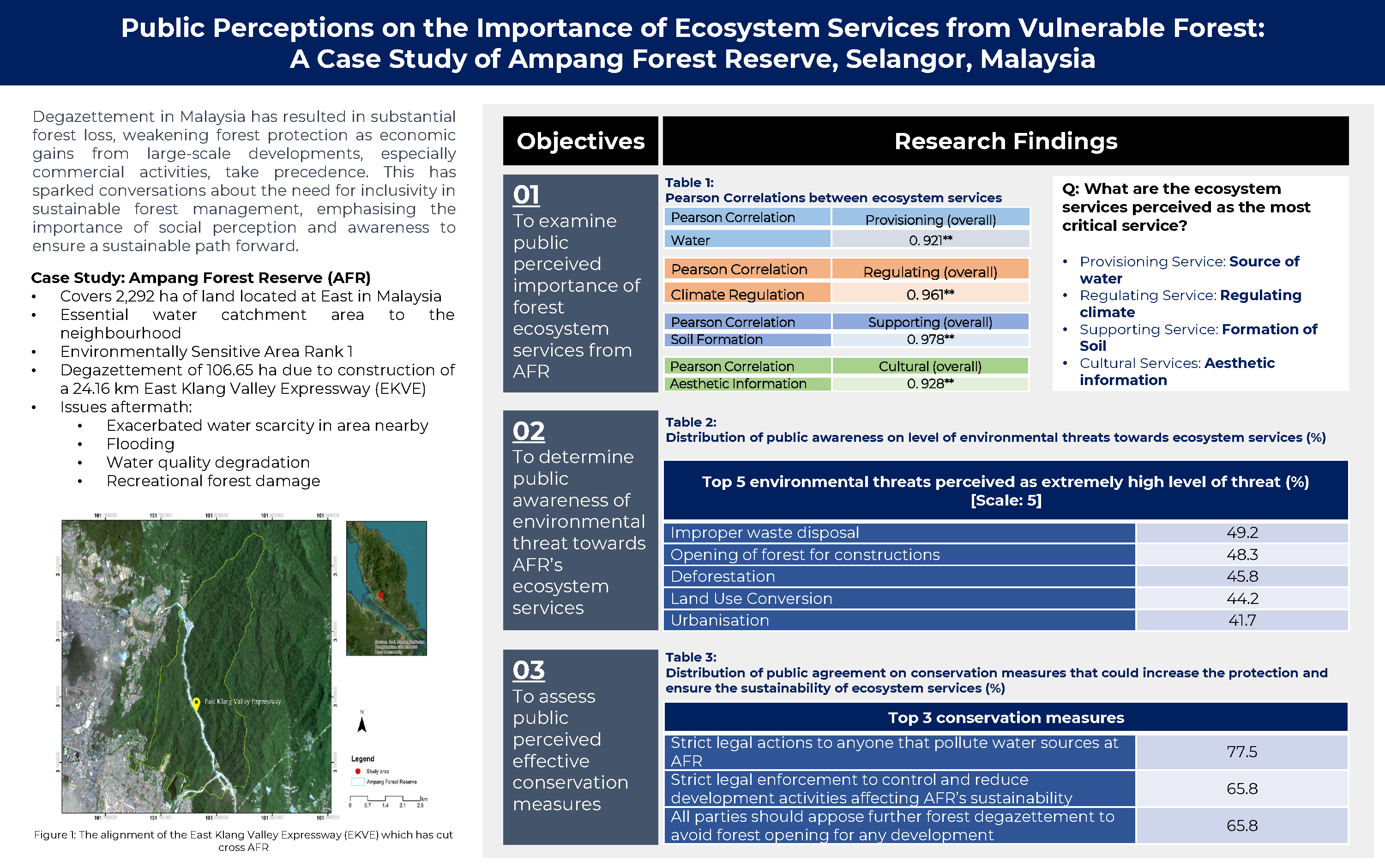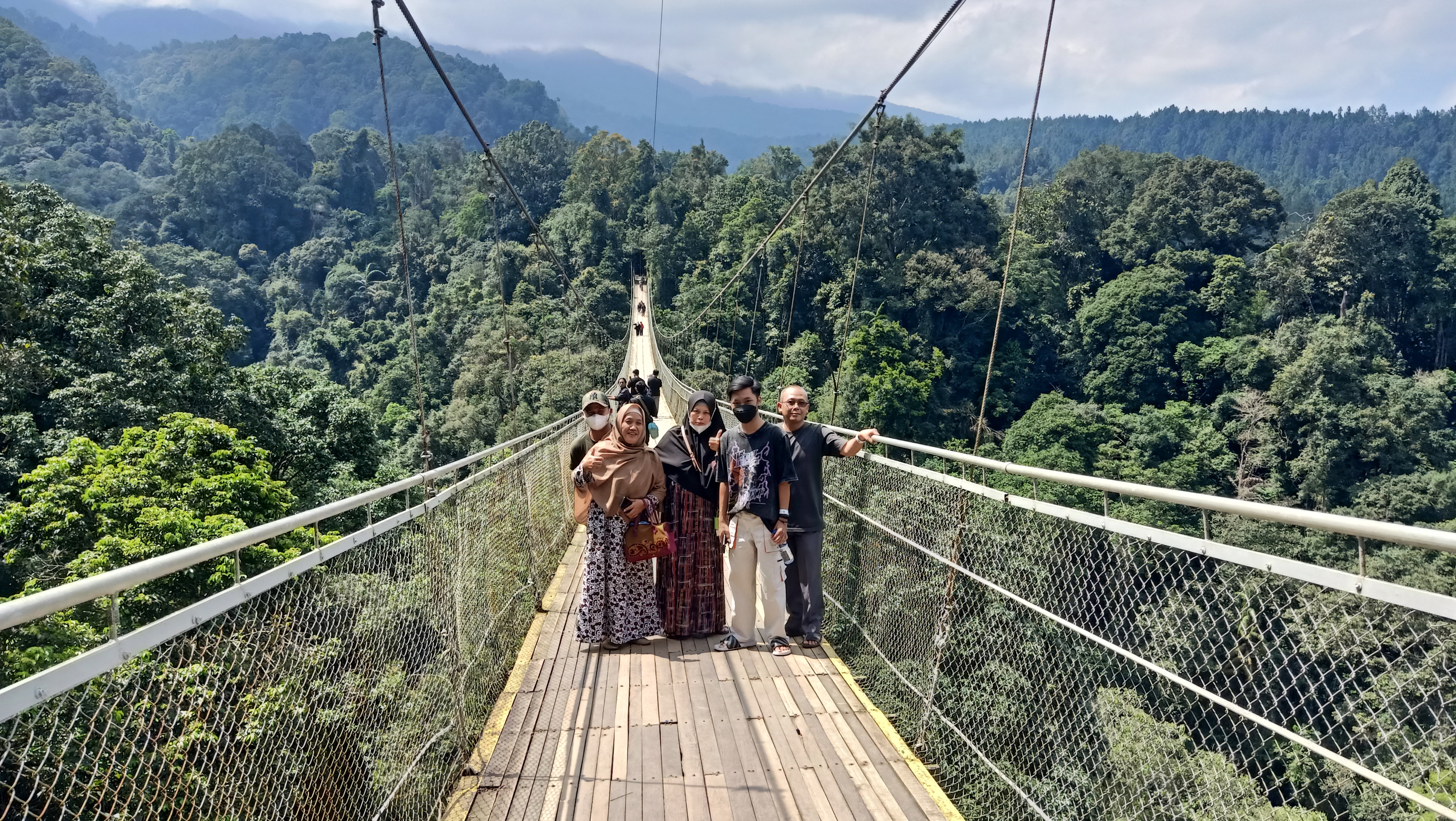Abstract
Utilization conflicts among users threatening the sustainability of forest management. This study is to determine the intensity of conflict and the sustainability of forest management in FMU Meranti by integrating the convergent parallel mixed method and Rapid Land Tenure Assessment. Data was collected through interviews with key informants, literatures, maps, documents, and histories studies; as well as focus groups discussions in eight villages around the FMU Meranti. The results showed that the people's bundle of right, the interaction and social capital, dispute against the coorporation's financial modal. Generally, the interaction and social capital elements are owned by the local community, while the financial modal is owned by the permit holder and the local elite. Based on the power analysis on each object, the power of both community and permit holders are equally strong. The conflict intensity is subdivided into three conflict categories, i.e.: open (31%), appear (44%), and latent conflicts (25%). The special area (wilayah tertentu) and open access area are highly prioritized, that need conflict resolution. The existence of the environmental damages, unclear ownership rights, lack of stakeholder supporting, and non-optimal institutional performance lead the sustainable forest management to bad category (40.6%).
Authors
NapituJ. P., HidayatA., BasuniS., & SjafS. (2017). Conflicts of Utilization and Sustainable Production Forest Management in Forest Management Unit of Meranti in South Sumatera. Jurnal Manajemen Hutan Tropika, 23(3), 158-170. Retrieved from https://journal.ipb.ac.id/index.php/jmht/article/view/19977

This work is licensed under a Creative Commons Attribution 4.0 International License.
Jurnal Manajemen Hutan Tropika is an open access journal which means that all contents is freely available without charge to the user or his/her institution. Users are allowed to read, download, copy, distribute, print, search, or link to the full texts of the articles in this journal without asking prior permission from the publisher or the author. This is in accordance with the Budapest Open Access Initiative (BOAI) definition of open access.


